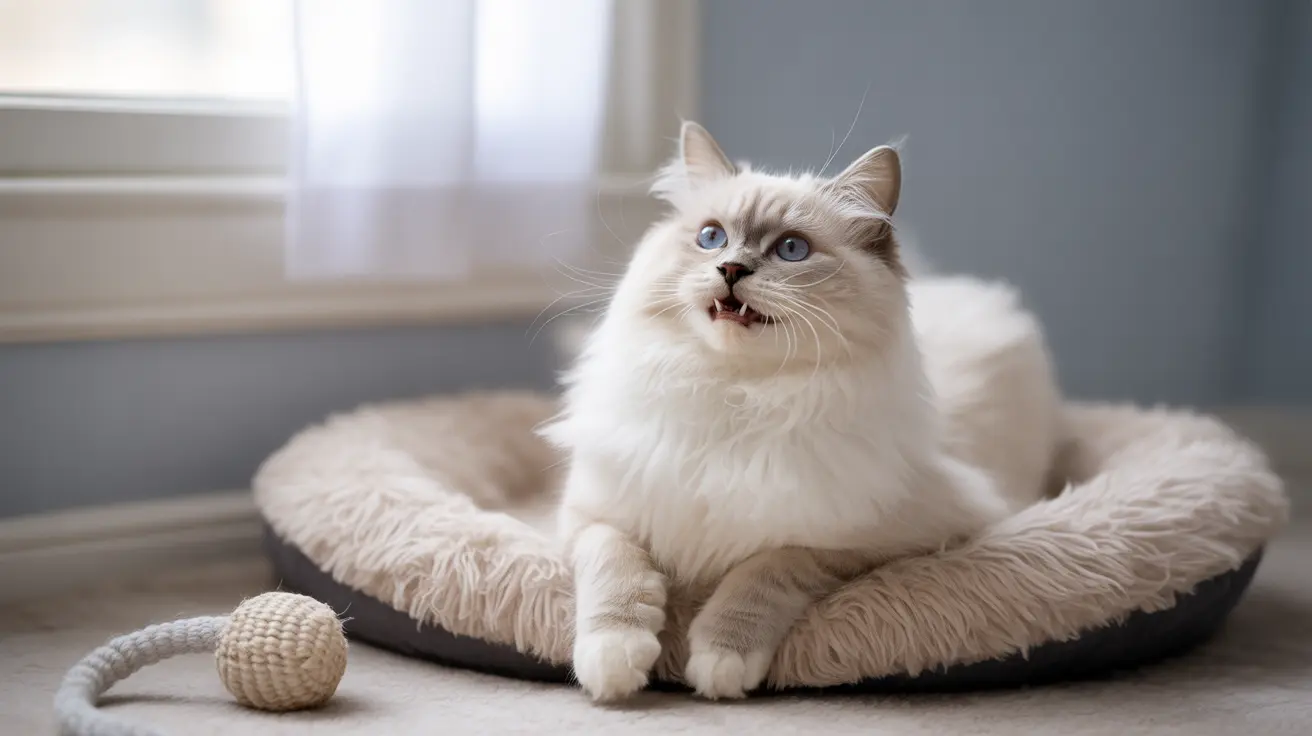If you've ever wondered "do cats lose teeth as they get older," the answer might surprise you. Unlike humans, cats are not supposed to lose their teeth as part of the natural aging process. While tooth loss is common in older cats, it's almost always a sign of underlying dental disease or health issues that require veterinary attention.
Understanding the difference between normal and abnormal tooth loss in cats is crucial for maintaining your pet's health. Let's explore what you need to know about feline dental health, including warning signs, prevention strategies, and when to seek professional care.
Natural Tooth Development in Cats
Cats go through a normal tooth loss phase only once in their lives - during kittenhood. Kittens start developing their first set of teeth (deciduous or "milk" teeth) at around 2-6 weeks of age. These baby teeth naturally fall out between 11-14 weeks, making way for 30 permanent adult teeth that should last for the rest of their lives.
Understanding Dental Disease in Adult Cats
By age four, up to 90% of cats show signs of dental disease. This startling statistic highlights why adult tooth loss is such a serious concern. The most common causes include:
Periodontal Disease
This progressive condition affects the structures supporting the teeth, including gums, ligaments, and bone. Without treatment, teeth can become loose and eventually fall out.
Tooth Resorption
This painful condition affects about 60% of cats over age six. The tooth structure gradually breaks down from the inside out, often requiring extraction.
Warning Signs of Dental Problems
Watch for these indicators that your cat might be developing dental issues:
- Bad breath (halitosis)
- Difficulty eating or dropping food
- Drooling or bleeding from the mouth
- Visible tartar buildup or discolored teeth
- Changes in behavior or decreased grooming
- Loss of appetite or weight loss
Prevention and Care
Maintaining your cat's dental health requires a multi-faceted approach:
Professional Care
Regular veterinary dental checkups and cleanings are essential, especially for senior cats. Don't let fears about anesthesia prevent necessary dental procedures - modern protocols make these treatments safe for most elderly cats.
Home Care
Start a dental care routine that includes:
- Regular tooth brushing with cat-specific products
- Dental treats or specially formulated food
- Monitoring for signs of dental problems
When to Seek Veterinary Care
Any sign of tooth loss in an adult cat warrants immediate veterinary attention. Early intervention can prevent more serious complications, including damage to vital organs from bacterial infections that start in the mouth.
Frequently Asked Questions
Do cats normally lose their teeth as they get older, or is tooth loss a sign of dental problems?
No, cats should not normally lose teeth as they age. Adult tooth loss is almost always a sign of dental disease or other health problems that require veterinary attention.
What are the most common causes of tooth loss in adult and senior cats?
The primary causes are periodontal disease, tooth resorption, severe gingivitis, and occasionally oral tumors. Infections and systemic health conditions can also contribute to tooth loss.
How can I tell if my cat has dental disease or is at risk of losing teeth?
Look for bad breath, difficulty eating, drooling, bleeding gums, visible tartar, loose or missing teeth, and changes in behavior or appetite. Any of these signs warrant a veterinary examination.
What dental care steps can I take to prevent tooth loss and gum disease in my cat?
Implement regular tooth brushing, provide dental treats or special diets, schedule professional cleanings, and maintain regular veterinary checkups. Early prevention is key to maintaining dental health.
When should I take my cat to the vet if I notice loose or missing teeth?
Take your cat to the vet immediately if you notice any loose or missing teeth. This is never normal in adult cats and requires prompt professional evaluation and treatment.
Conclusion
While tooth loss is common in older cats, it's not a normal part of aging. Regular dental care, vigilant monitoring, and prompt veterinary attention when problems arise are essential for maintaining your cat's oral health and overall well-being throughout their life.






